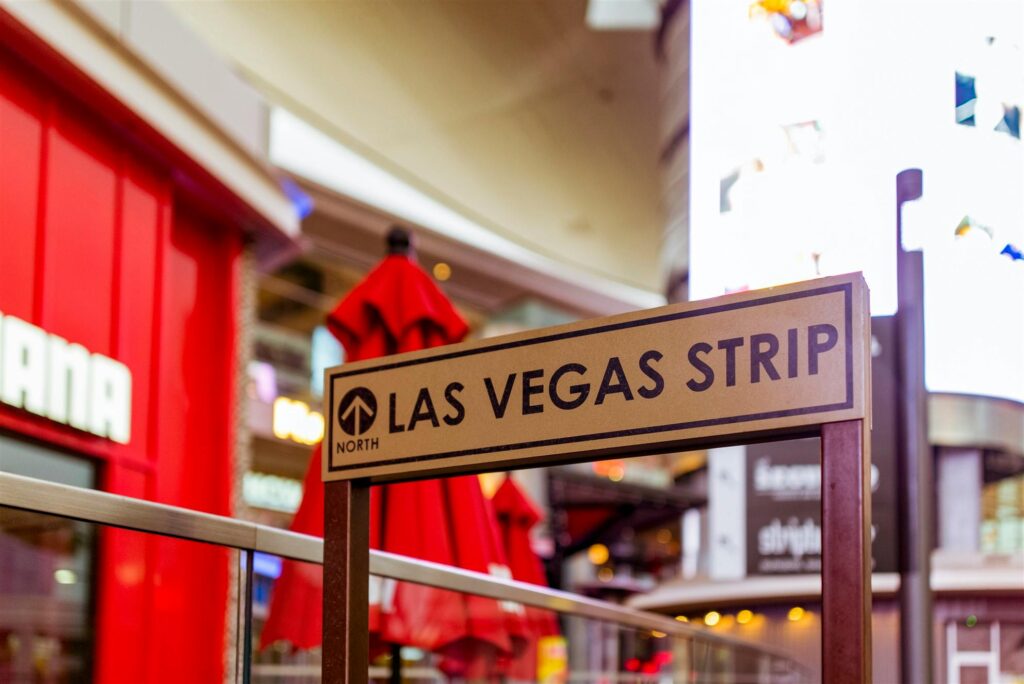Selling a business in Vegas requires preparation, clean data, and a strategic approach to presenting value. Nevada’s strong population growth, favorable tax structure, and robust tourism economy create a healthy market for acquisitions. But as with buying a business, selling requires structure. Buyers want transparency, predictable operations, and proof that a business can be transferred successfully. This guide mirrors the style and depth of our Buying Guide to help founders navigate the full exit process in a practical, organized way.
Step 1 — Understand What Buyers Want in the Las Vegas Market
Buyers in Las Vegas make decisions based on stability, transparency, and the ability to operate successfully after the transition. According to the Las Vegas Global Economic Alliance, the city’s most active small-business acquisition categories include home services, hospitality, retail, wellness, beauty, logistics, and entertainment. Regardless of industry, buyers consistently look for businesses that demonstrate organized operations and clear financial performance.
Most buyers look for:
- Verifiable cash flow: Buyers want books that clearly match real performance. Clean P&Ls, stable margins, and understandable addbacks help buyers feel confident about the investment.
- Strong digital presence: In a search-driven market like Las Vegas, Google visibility, reviews, and brand reputation matter. Buyers often rank digital footprint nearly as high as financials.
- Documented systems: SOPs, training materials, and organized processes reduce owner dependence and make the business easier to transfer.
- Stable customer demand: Companies with predictable customer flow, recurring revenue, or consistent inquiries stand out immediately.
- Reliable staff: A trained, stable team increases valuation because it lowers operational risk for the buyer.
- Clean legal and operational records: Current licensing, up-to-date permits, and compliance with local regulations matter.
Understanding these buyer expectations helps you prepare your business in a way that supports a smoother sale and stronger valuation.
Step 2 — Determine the Right Moment to Sell
Choosing the right moment to sell can influence how quickly your business receives offers and the type of buyers who engage. Timing is especially important in Las Vegas, where tourism cycles, conventions, and population growth shape business performance throughout the year.
Ideal timing often includes:
- Strong recent financial performance: Buyers respond favorably to businesses with upward trends over the past 12–24 months.
- Healthy staffing and operational stability: Businesses with consistent leadership and reliable team members attract more serious buyers.
- Completed modernization projects: Sellers who recently improved systems, branding, or digital presence typically receive stronger interest.
- Favorable local economic conditions: According to the Nevada State Demographer’s Office, Las Vegas continues to see steady population growth—strengthening demand for service businesses and retail concepts.
- Personal readiness: Whether retiring or pivoting to a new venture, sellers should ensure they have the time and clarity to support transition training.
Selling from a position of momentum helps justify your asking price and reduces negotiation friction.

Step 3 — Strengthen the Business Before Listing
This step has one of the biggest impacts on valuation. In Las Vegas’s competitive market—where buyers frequently come from California, Arizona, and other states seeking turnkey opportunities—businesses that appear organized and modernized command stronger offers and faster interest.
Below are key areas to improve before listing:
Clean Financials and Organized Books:
Buyers want financial clarity, not complexity. Clean books—properly categorized expenses, consistent P&Ls, reconciled accounts, and defined addbacks—create immediate confidence in your operation. Businesses that mix personal expenses with business costs or inconsistently track revenue lose negotiating leverage quickly. When financials are organized, buyers recognize the professionalism behind the business and are more comfortable offering stronger terms.
Ensuring your financial documentation includes three to five years of tax returns, clear revenue patterns, stable gross margins, and identifiable cost structures helps buyers verify your stability. Clean financial data also accelerates SBA lending approvals, which is a major advantage in markets like Las Vegas where many buyers use SBA-backed loans to finance acquisitions.
If you know someone who is in need of these items, we have put together a list of trusted Vegas Tax & Financial service providers to help local business owners make safer choices.
Strengthening Operations and Reducing Owner Dependence:
Owner dependence is one of the most common value-killers in small business exits. Las Vegas buyers prefer businesses that run through documented processes, not individual personalities. Creating SOPs, outlining staff responsibilities, improving training manuals, and delegating recurring tasks builds transferability. Buyers want businesses that can transition smoothly without disruption, and demonstrating organized systems significantly improves buyer perception.
Reducing owner dependence also helps you negotiate stronger terms. A business that can operate efficiently without relying heavily on the owner’s relationships or expertise has far wider appeal. These improvements show buyers that the company’s success is driven by systems—not by personal involvement.
Modernizing Your Digital Footprint:
A business’s digital presence is now considered part of its infrastructure. Buyers in Las Vegas expect to see a professionally maintained Google Business Profile, a high-quality website, a quality search engine rankings, and healthy review volume.
Updating your website, optimizing service pages, improving local ranking signals, and engaging customers through reviews all contribute to perceived stability. Many sellers underestimate the impact of digital visibility, but in a tourism-driven and search-reliant market like Las Vegas, online presence directly influences buyer interest.
Branding & Customer Experience Updates:
Clear messaging, modern branding, updated website visuals, and consistent customer communication increase perceived value. Even minor improvements—such as updated photography or a refreshed homepage—make the business feel more attractive and ready for new ownership.
System Improvements & Operational Tools:
Modern POS systems, automated scheduling tools, CRM platforms, and inventory management systems show buyers that the business is efficient and scalable. Improving operational tools before listing signals that the business is well-run and reduces a buyer’s future workload.
Strengthening your business before listing not only increases buyer confidence but also can justify a higher price and reduce time on market.
Step 4 — Get a Professional Valuation
Valuation is a critical step and builds the foundation for your asking price. Most Las Vegas small businesses sell between 2.0–3.0× SDE (seller’s discretionary earnings) for service-based companies and 2.5–4.0× SDE for hospitality, retail, and consumer brands. Companies with strong digital presence, recurring revenue, and low owner dependence may achieve higher multiples.
Valuation firms typically evaluate:
- Financial performance and stability
- Customer base and market demand
- Quality of staff and leadership
- Operational systems and documentation
- Lease strength and location desirability
- Digital presence and brand reputation
Understanding your valuation helps set realistic expectations and supports better negotiation.
Step 5 — Prepare All Financial and Legal Documentation
Buyers want clarity and structure. Preparing documents before listing helps shortlist serious buyers and speeds up due diligence. Sellers should gather key financial, legal, and operational records in advance to ensure transparency and build buyer confidence.
Essential documents include:
- 3–5 years of tax returns: Buyers use these to verify historical performance.
- Profit & loss statements: Clean, consistent P&Ls show operational health.
- Balance sheets: These help buyers understand assets, liabilities, and equity.
- Payroll summaries: Staffing structure is important in labor-sensitive markets like Las Vegas.
- Vendor and supplier agreements: Buyers want clarity on cost structure and continuity.
- Lease documentation: Terms, renewal options, and CAM charges matter in local valuation.
- Licenses and permits: Ensuring everything is current avoids legal delays.
- Equipment lists: Helps buyers understand what assets transfer.
- SOPs and training materials: Improve transferability and value.
- Website, domain, and hosting access: Digital assets are now part of valuation.
- Google Business Profile ownership: A major digital acquisition component for local businesses.
Preparing these items early helps maintain momentum once buyers begin showing interest.

Step 6 — Choose Your Sales Channel
Sellers in Las Vegas typically choose one of four paths when taking a business to market, and each one offers different advantages depending on your industry, confidentiality needs, valuation expectations, and desired timeline. Selecting the right channel is one of the most important decisions in the exit process because it determines the quality of buyers you attract and how smoothly the transaction progresses. Las Vegas is a high-traffic acquisition market, so understanding the strengths of each path can help you reach serious, well-qualified buyers efficiently.
Local business brokers:
Local brokers are the most common option for traditional brick-and-mortar or service-based businesses. They understand the Las Vegas market, maintain existing buyer lists, and handle the confidential marketing process from start to finish. A strong broker can help package your financials, prepare your listing documents, and screen buyers before they ever reach you. This path works especially well for businesses with a physical location, established customer base, and consistent revenue.
Industry-specific brokers:
Some sellers benefit from working with a specialist who deeply understands their vertical. Restaurant brokers, salon brokers, logistics brokers, and wellness brokers have targeted buyer networks and know how to market the unique attributes of each industry. They are particularly effective at presenting businesses with specialized equipment, technical compliance requirements, or unique operational knowledge. Industry brokers often command higher valuations because buyers trust category-specific expertise.
Online marketplaces:
Platforms like BizBuySell, BizQuest, Flippa, and Quiet Light are ideal for digital-first businesses or companies that can be transferred with minimal operational disruption. These marketplaces expose your listing to a large pool of buyers across the country, including investors relocating to Nevada or entrepreneurs seeking remote-friendly operations. Online marketplaces also let you maintain control over confidentiality, since you can use blind listings and only reveal business details after NDAs are signed.
Local Private investors:
Some sellers choose to work directly with private buyers, which is an increasingly common path in Las Vegas as more out-of-state entrepreneurs, Nevada Certified Investors, and local capital groups look for established companies with predictable cash flow. Private buyers often move faster, require fewer formal listing steps, and value businesses that show strong documentation and operational clarity. This path also allows sellers to maintain tighter confidentiality since the business is not actively marketed on public marketplaces.
Common private investor groups in Las Vegas include:
- Nevada Certified Investors:
Nevada’s unique certification pathway gives local investors access to opportunities outside traditional SEC-accredited requirements. These buyers often look for stable operations, transferable systems, and recurring revenue. They value clean documentation and minimal owner dependence, and many prefer businesses that can be operated semi-passively or scaled. - Family offices relocating from California and Arizona:
Las Vegas continues attracting high-net-worth individuals and family offices seeking both lifestyle advantages and business ownership opportunities. Many of these families want cash-flowing service businesses, hospitality-adjacent operations, or wellness and retail concepts that align with the region’s economic base. Family offices typically move quickly and offer flexible deal structures. - Local investor groups and meetups:
Las Vegas hosts an active ecosystem of business meetups, investor networks, and entrepreneurial communities. Events tied to the Vegas Chamber, local coworking spaces, and small business associations often include investors seeking acquisitions. These groups are ideal for sellers who prefer quiet, relationship-driven introductions instead of public listings. - Industry professionals looking to step into ownership:
Longtime Las Vegas hospitality workers, beauty professionals, logistics specialists, and wellness practitioners often pursue ownership to advance their careers. These buyers understand the city’s labor patterns, customer expectations, and industry culture—making them well-suited to take over businesses that match their background. - Local tax advisors, CPAs, and finance professionals:
Advisors in Las Vegas frequently work with investors who are actively seeking acquisition opportunities for tax optimization, portfolio expansion, or diversification. Reaching out to finance and tax professionals who understand Nevada’s business landscape can quietly connect sellers with qualified buyers. - Law offices with small-business or M&A divisions:
Many Nevada business attorneys maintain private buyer lists or represent clients seeking to acquire local companies. These local attorneys often know when individuals or investor groups are looking for deals and can facilitate introductions while preserving confidentiality. This path is especially effective for sellers who want controlled outreach without public exposure.
This blend of investor pools is unique to Las Vegas, where the combination of population growth, favorable tax laws, and industry diversity attracts a wide range of qualified buyers. Working with private capital can reduce marketing time, improve confidentiality, and allow sellers to negotiate directly with highly motivated individuals.
Step 7 — Market the Business Confidentially
Confidentiality is important in Las Vegas due to staffing sensitivity, customer relationships, and vendor dynamics. Most sellers use blind listings that describe the business without revealing the name. Interested buyers must sign NDAs before receiving financial summaries or operational details.
Confidential marketing helps you:
- Protect staff morale
- Maintain customer confidence
- Avoid vendor disruptions
- Control the pace of information release
- Filter serious buyers from casual inquiries
Confidential listings create a smoother transition and minimize operational risk during the sale process.
Step 8 — Navigate Buyer Due Diligence
Due diligence is the phase where buyers verify every detail of the business. Sellers who prepared in advance (Step 3 and Step 5) move through this stage much faster and with fewer renegotiations.
Buyers typically review:
- Financial performance
- Staffing structure
- Customer demand patterns
- Vendor relationships
- Lease terms
- Digital asset ownership
- Website analytics and rankings
- Licenses and compliance
- Operational systems and workflows
For deeper preparation, our Vetting Investment Opportunities guide and Due Diligence Checklist explain how serious buyers evaluate opportunities.
Step 9 — Negotiate Terms & Finalize the Deal
Once the buyer is satisfied with due diligence, you move into negotiations. Most sellers work with a Nevada business attorney and Vegas CPA’s to finalize purchase agreements, non-compete terms, transition support, and any seller financing.
Negotiations usually cover:
- Total purchase price
- Payment structure
- Earnouts or performance conditions
- Training and transition periods
- Transfer of digital assets
- Non-compete clauses
- Lease assignment terms
If restructuring your entity helps align your exit or simplify transfer, our How to Set Up an LLC in Las Vegas guide offers a clear path to doing so.
Step 10 — Close the Sale and Support a Smooth Transition
Most sales in Las Vegas include a transition period where the seller trains the new owner and helps stabilize operations. Typical transitions range from 30–90 days depending on the complexity of the business.
Transition support often includes:
- Staff introductions
- Vendor and supplier coordination
- Customer handoffs
- Digital account transfers
- SOP walkthroughs
- Operational training
- System onboarding
A clean transition protects both your reputation and the ongoing success of the business.
Final Thoughts
Selling a business in Las Vegas can be a smooth process when supported by clean documentation, operational readiness, and thoughtful timing. With proper preparation and clear systems, most businesses can achieve stronger offers and faster closings. For additional support, explore our Doing Business in Las Vegas guide, Due Diligence Checklist, and AI Consulting in Las Vegas resource to help you prepare a polished, buyer-ready package.







